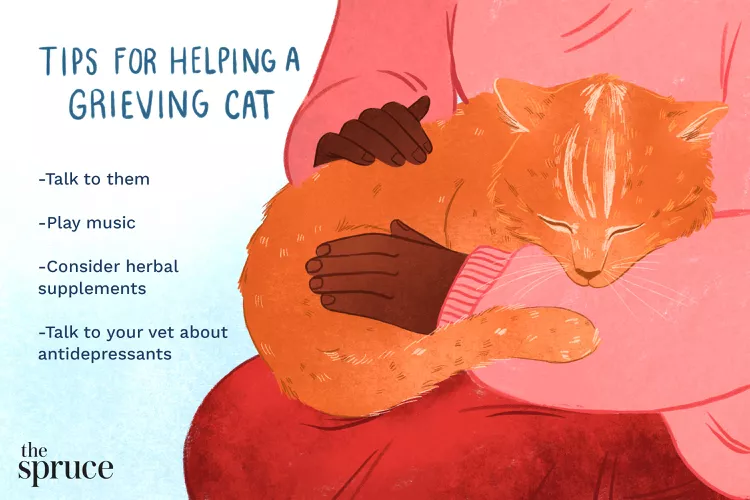
Pet loss and grief can be difficult and heartbreaking for people, but it can be an even greater challenge to help the surviving pets deal with pet loss. Cats do, indeed, grieve.
They cannot tell us how they feel. And the owners in the family may overlook behavior changes while dealing with their own sense of loss. Not every pet will react at all, while a percentage seems to suffer greatly. When pets grieve, they usually show their sense of loss with behavior changes. In fact, separation anxiety is one form of grief—your cat only understands someone she loves is gone.
The surviving pets often begin to act differently when their companion cat or dog first becomes sick or starts to decline. For people, this can be a time of preparation, and some of our grieving may be done well in advance of the pet’s actual death. Dr. Barbara Kitchell, a veterinary cancer specialist, says that grief counseling often is part of what caring veterinarians naturally do.
We can’t know if surviving pets realize their companion animal friends will soon die, but they certainly do act as though aware a change has--or will--occur. In fact, many sensitive cats (and dogs) react to their owners’ emotional upset and grieve in response to our own changes of behavior over the heartache.
The surviving pet may seem withdrawn and depressed. Often their personality changes and a shy cat could become more demanding of attention, while a demanding cat instead hides.
One of the most heartbreaking situations occurs when the surviving pet cries and looks everywhere for the missing loved one. This futile, heartbreaking search can go on for weeks.
Although it sounds macabre, sometimes it may be helpful to allow the surviving pet to say “goodbye” to the body after a furry friend has died. They may sniff and examine the body, cry or ignore it all together--and any reaction should be considered normal. That’s the only way we can explain to them what has happened to their friend, and why a beloved cat- or dog-friend has disappeared from their life. Viewing the friend's body allows them a chance to understand he's not coming back. They still grieve but hopefully aren't driven to look for their missing buddy.
People go through several stages of grief—denial, anger, bargaining, depression, acceptance—but not necessarily in this order. While anthropomorphic to think pets might “bargain” (I’ll let you have my catnip toy if only you come back!) it’s certainly within the realm of possibility that they might feel anger or depression over the loss. Pets do in fact seem to finally work through the situation to acceptance--it takes some pets much longer than others just as people get over a loss in different time frames.
Many of the same things we do for each other can help our pets. Dr. Wallace Sife, a psychologist, and author of “The Loss of a Pet” says to allow the grieving and even validate it with each other by simply offering compassion and support.
How do you help your pets manage grief? Simply being with them for extra one-on-one time can help.
Give your cat the gift of time to grieve. It hurts terribly--for you as well as your surviving pet. Still, the capacity to grieve honors the memory of the departed, and is a measure of the depth of our love. And that truly is a legacy to celebrate.
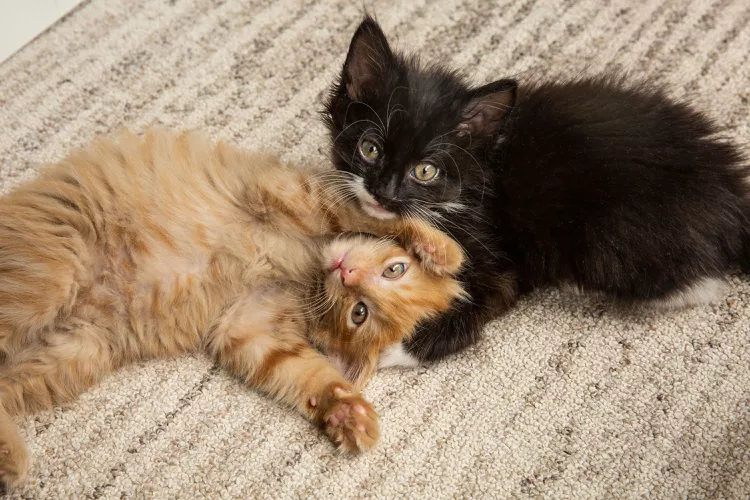
Why Two Kittens Are Better Than One
There are benefits of adopting two kittens, such as more feasible training and companionship between them.
Everything You Need to Know About Raising Your First Cat
Whether you are thinking about getting a cat or just adopted your first one, these are the things to know to make your relationship a lasting one.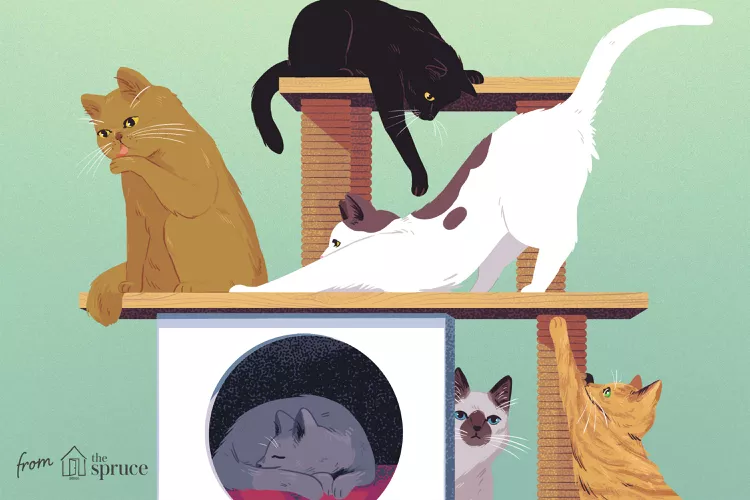
How Can I Tell the Sex of a Cat?
Telling male and female cats apart can be difficult for those who don't know what they're looking for. Here are helpful tips to discover their sex.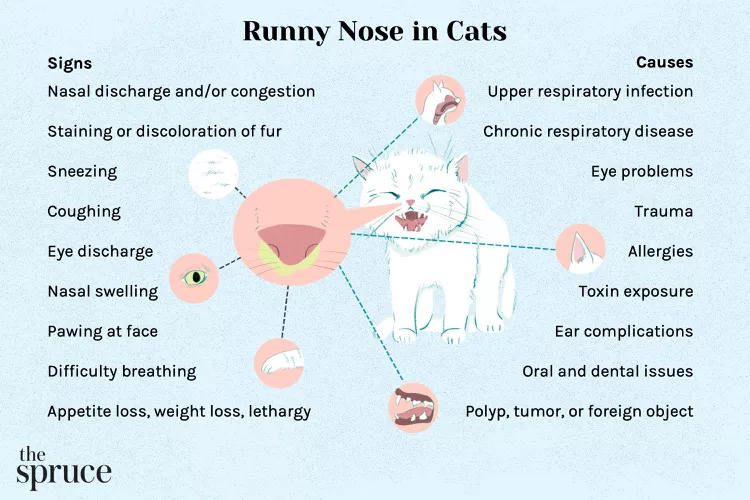
Runny Nose in Cats: Causes and Treatment
Cats get runny noses due to upper respiratory issues, but many conditions can cause this. Learn the causes of runny noses in cats and the associated signs. Find out how vets diagnose and treat cats with runny noses.
How Long Can You Safely Leave Canned Cat Food Out?
You cannot safely leave canned cat food out all day. Twenty to 30 minutes is the max, so give smaller portions and reheat food for later feedings.
Meat Byproducts in Cat Food
Most cat experts recommend premium brands of cat food that avoid ingredients like byproducts and chicken meal. Learn what to look for on the label.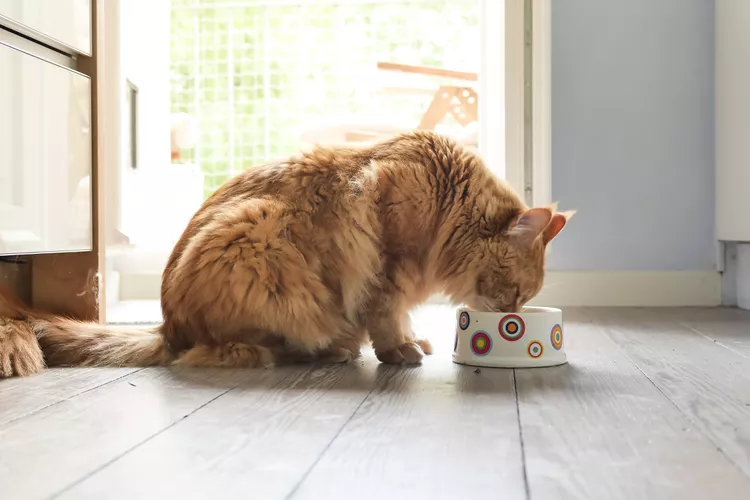
How Much Wet Food to Feed a Cat Every Day
The amount of wet food your cat needs depends on factors such as age, weight, body condition, and lifestyle. Learn how much wet food to feed your cat.
Taurine for Cats
Taurine is an essential animal protein in your cat's diet. Learn more about the various ways it supports your feline's body.
The Different Types of Pet-Friendly Workplaces
Discover the different types of pet-friendly workplaces and the benefits they offer employees. Learn how to create a pet-friendly workplace and the best practices for pet owners.
8 Halloween Safety Tips for Pets
The spooky holiday can be overstimulating and even dangerous for pets. Here's how to avoid the problems caused by toxic candy and incessant doorbells.
Why You Should Keep Cooked Bones Away From Your Dog This Holiday Season
People should be aware of the dangers of cooked bones, especially around the holidays when they might be more accessible to your pup.
Can Dogs Eat Squash? Here's What a A Vet Thinks
Dogs can safely eat squash as long as it's prepared correctly. Find out how to properly feed this versatile fruit to your dog.
16 Small Cat Breeds That Are Petite Purring Machines
Small cat breeds like the Singapura and munchkin may be smaller than an average housecat, but they leave a giant imprint on your heart.
10 Best Cats With Big Ears
Cats with big ears often look extra endearing. Check out some common big-eared cats, including the Abyssinian, Devon Rex, Siamese, Sphynx, and more.
Javanese (Colorpoint Longhair): Cat Breed Profile, Characteristics & Care
The Javanese is a semi-longhaired, color-pointed cat of Siamese type. They are related to the Siamese, Colorpoint Shorthair, and Balinese breeds.
How to Stop Aggression in Dogs
Dog aggression can be a serious behavior issue for pet owners. Learn how to stop aggression in dogs before someone gets hurt.
Should Dogs Be Allowed on Furniture?
Should you let your dog on the couch or in the bed with you? Are there any reasons we should not let dogs on the furniture? Here's what to know.
Why Do Dogs Eat Rocks?
One of the most common non-food items for dogs to eat are rocks. Here's what to know about why dogs eat them and how can you stop your dog from eating rocks.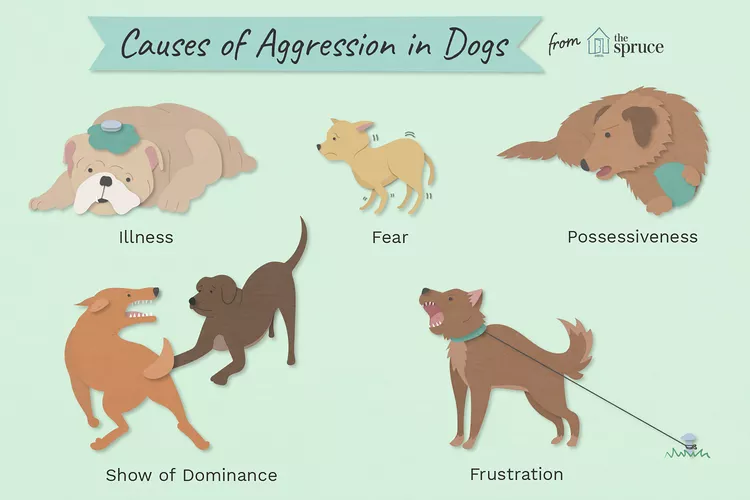
Why Dogs Get Aggressive and How to Stop It
Why is your dog biting you aggressively? Sometimes dogs can become aggressive with little warning. Find out what causes your dog to become aggressive so you can work with the behavior.
Thai Ridgeback: Dog Breed Characteristics & Care
Learn all about the Thai Ridgeback, a rare breed from Thailand. Find out how to care for the loyal dog and where to buy or adopt one.